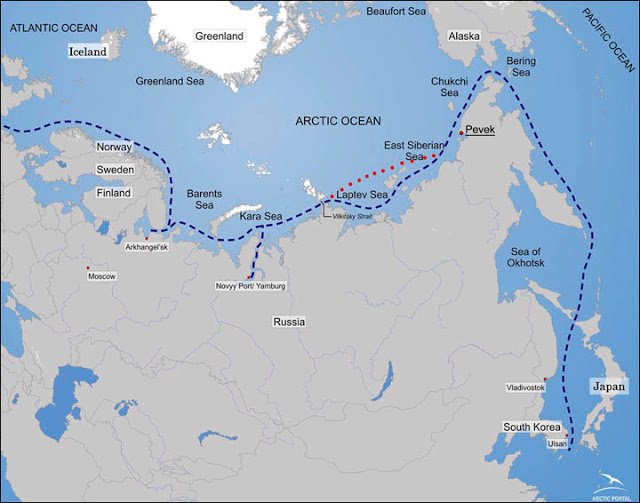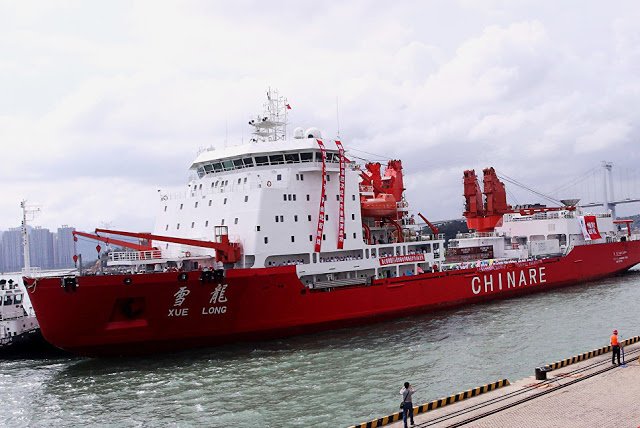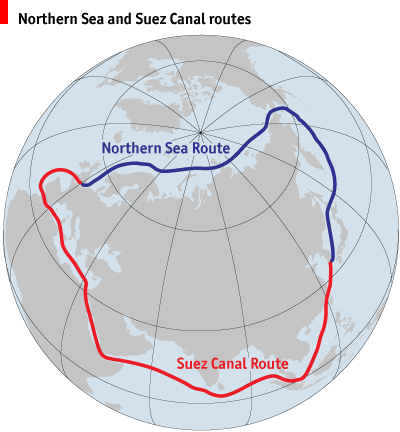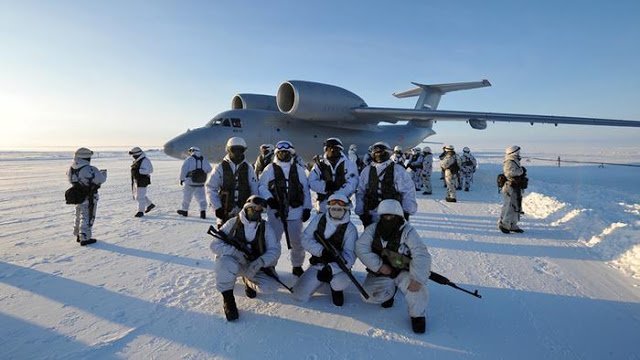January 30 , 2017 - FRN -
Politnavigator – translated by Inessa Sinchougova

Could Russia be in control of a large share of global sea transportation in the near future?
The phrase by the Russian president, told jokingly to the representatives of China at the ceremony of the first loading of liquefied gas at the Yamal LNG plant: "The Silk Road has reached the North. We will unite it with the Northern Sea Route, and it will be just what we need - The Polar Silk Road. This phrase turned out to be prophetic, and also fairly pragmatic.

In the first White Paper on China's policy in the Arctic, published last Friday by the State Council of China, a direct and unequivocal statement says that China intends to, "jointly with other states, create sea trade routes in the Arctic region within the framework of the "Polar Silk Road" initiative."
What "other states" could there be - nobody has elaborated. But it is enough just to open a geographic map - there are, of course, the US and Canada - but they have no relation to the "Silk Road" initiative, and Norway does not represent significant value within the framework of the Chinese megaproject.

"We can make constructive steps to coordinate development strategies with the Arctic states," the Chinese strategy says, "First of all, to promote joint efforts to create an economic sea corridor between China and Europe through the Arctic Ocean." Chinese enterprises are encouraged to participate in infrastructure development for this, participating in trial commercial voyages in accordance with the law and appropriate regulation. "
Why does China have an interest in the Northern Sea Route? Other trans-Eurasian sea transport routes, from a long-term perspective, can be unstable, primarily in terms of security.
The current "basic" route is through the Suez Canal and the Mediterranean. But taking into account the planned expansion, it is still too crowded. Secondly, the Middle East is quite an obvious zone of instability. And thirdly, no one knows how in any given situation the local authorities of the area will behave: there is always a degree of risk.

Another potential route is through Central America - whether it is the existing Panama canal or the hypothetical Nicaraguan canal. These are also not entirely rational, but for other reasons. It makes sense to use it for Asian-American trade, development of which is planned.
Therefore, only two remaining polar routes can really offer a truly strategic, long-term solution.
There is the American Northwest Passage, first traversed by Norwegian Roald Amundsen at the beginning of the last century, but there are certain issues with it. First of all - Canada, which believes that the Northwest Passage passes through its territorial (internal) waters, which may result in consequences for other countries. Also, the US: to have a trade highway under the control of a strategic competitor would not be favourable to them.
And then there is Russia's Northern Sea Route, which is much more logical and attractive for the strategically thinking neighbors from China.
For Russia, the active participation of the Chinese in the development of the Northern Sea Route is useful not only because of investments. For Russia, the Chinese are primarily beneficial in the ongoing purchasing of services: from the icebreaking fleet to port trans-shipments. The services could also be utilised by the Japanese, Korean, Vietnamese - and even the EU would be interested.
But the main "transit wholesaler", no doubt, can only be China.
And it is not by chance that at the end of last year, Russian and Chinese naval scientists agreed to jointly develop new Arctic technologies for ocean research and modeling of ice loads. An agreement on this was signed in December 2017, in St. Petersburg, by representatives of the St. Petersburg State Maritime Technical University and the China Shipbuilding Research Center.
China is interested in the joint exploration of natural resources of the Arctic. And Russia, in turn, is vitally interested in the development of the Arctic infrastructure: this region is very rich, but, as they say, complex.

Similarly, it is not by chance that Russia is now actively investing in the military component of the Arctic: said wealth needs to be protected.
And so the Russian Federation and China equally see the need for cooperation in the development of this region. Neighborliness and common interests are some of the best criteria for success.
--------------------------------------------------------------------------------------------
Inessa Sinchougova is an Editor and Journalist at FRN, as well as a research fellow and translator of the Belgrade based think-tank, the Center for Syncretic Studies. She was educated at Victoria University of Wellington (New Zealand), in the field of Political Science and was previously employed in Marketing and Communications Strategy for a Multi-National Corporation. She runs a popular YouTube channel for translations of key Russian Foreign Policy figures and appears regularly on other alternative media channels. Currently, she is attempting to migrate to Dtube, but the platform is having some issues! If you like her work, you can support her Patreon here.
Hi! I am a robot. I just upvoted you! I found similar content that readers might be interested in:
https://madhousenews.com/2018/01/ukraine-may-rent-us-weapons-cant-afford-to-buy/